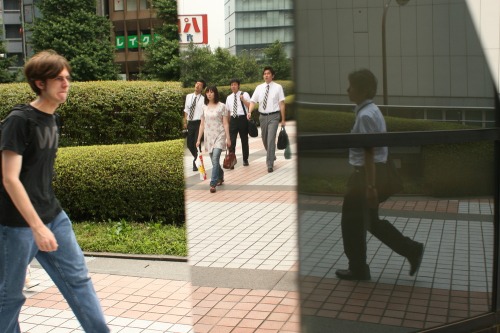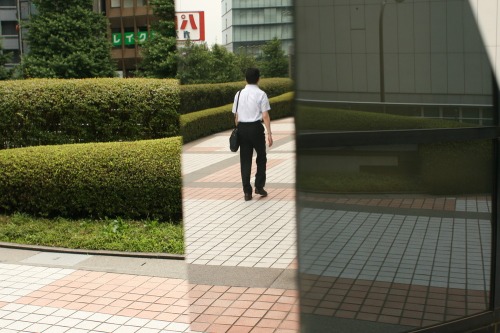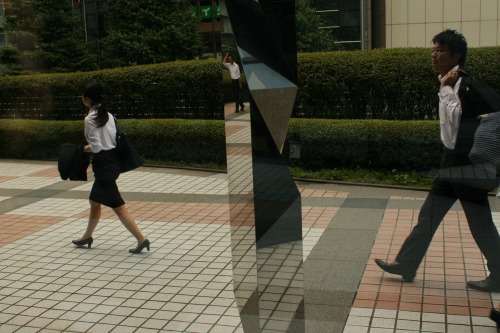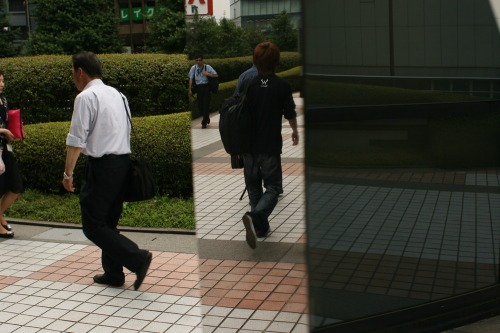http://www.bwob.ca/topics/opportunities/with-patience-comes-opportunity-in-ja…
http://v1.theglobeandmail.com/servlet/story/LAC.20101014.RBBWBJAPANJOHNSONATL…
Entrepreneurs who take the time to build relationships can make it in a country that is ‘tough to get into’ TOKYO — With a greying population and a stock market only one-fifth its 1989 value, Japan has seen its share of foreign business people decamp for the booming economies of China and India. But many Canadians who have remained in Japan say the key to success boils down to one word: Patience. “Japan is tough to get into and easy to leave,” said Wilf Wakely, who has 35 years experience in Japan as an entrepreneur, trade representative and business lawyer. “When the bright lights are on in India and China, the moths fly that way. But Japan is a fruitful place to do business. Turn the tap on, it’s real dough coming out. It’s an enormous economy and there are gaps in a number of important areas.” Japan is home to many Canadian entrepreneurs with profitable ventures in fields as diverse as music licensing, fashion photography and real estate. With patience and determination, they are bucking downward trends in the Japanese economy, where many “zombie” corporations (so called because taxpayer support is the only thing keeping them alive) and government ministries ran up debts and burned out their staffers during the 1980s boom. Meanwhile, underdeveloped industries such as travel and tourism remain mired in the Lost Decade of the 1990s. Though its economy was recently eclipsed by China’s, Japan’s remains the world’s third-largest and, according to Mr. Wakely, its best-kept secret. “There’s a Mount Fuji of savings. There’s a vast wealth of retirees. For me, there’s great opportunity in a place that is rich, wealthy, established and changing.” Stephen Huggins, a former football player at the University of Western Ontario, is pooling some of Japan’s enormous supply of capital into “land banking” real estate investments in Southern Ontario. He said his TSI International Group has about 50 employees and annualized turnover of about $50-million. While his five years in Hong Kong were like a master’s degree in “the speed of the deal,” he said his 11 years in Japan have been like a PhD thesis in “the value of a relationship.” “Having a short-term view [less than five years] is almost suicidal,” he said. “Ten is preferable.” He said even brash Wall Street titans have learned that “you can’t bully or buy your way into the market, as it takes time and patience.” He said his Japanese associates, who have nicknamed him “the Foreigner that Won’t Run Away,” won’t even consider dealing with companies until they show “a strong commitment to the market,” which he said means “years of presence.” He said Japanese are more cautious than investors elsewhere in Asia. “If I’m in Hong Kong, the potential client will ask me, ‘How much money can I make,’ and in Japan, they will ask me, ‘How much money can I lose?'” he said. “In Japan, providing comfort and security is crucial.” Benjamin Parks, 33, a fashion photographer and studio owner whose $20,000 initial investment has grown with the help of about a dozen local hires over the past six years, said the Japanese way of doing business is very appealing – honourable, conscientious, punctual and fair – even though they often won’t say why they like or dislike a supplier’s services. “This isn’t a country where you’re likely to be ripped off, lied to, or taken advantage of through some hidden wording in a business contract,” he said. “The Japanese think carefully about all relationships, especially business ones. Then, once you’re doing business and a plan of action is decided upon, they work hard to fulfill the plan and to make both parties happy.” He said forming business relationships takes a lot of work, and networking is a slower process than in the West. “The Japanese don’t like the idea of sudden, spontaneous, risky partnerships. They prefer a more step-by-step approach, where trust is strengthened little by little, and where consensus is arrived at gradually.” A University of British Columbia law graduate, Mr. Wakely often advises Canadians on what works – and doesn’t work – in Japan. He said his first venture, the Pizza Patio fast-food chain, hit hurdles after an American lawyer on his side “pounded the table” and scared off further investment by the Japanese side. But he didn’t give up on Japan. Working at the Canadian embassy in the 1980s, he helped get Mitsubishi Trust and other Japanese investors to construct Canada’s avant-garde embassy building in central Tokyo, which the Japanese corporations also rent out as office space. While a trade officer for the British Columbia government, he stayed after the 1995 earthquake shook his home and office in Kobe and destroyed a major global port city. He also stayed after Japan’s revolving door of prime ministers shut down a special cabinet committee where he and 20 other leaders of foreign businesses were able to tell senior bureaucrats face-to-face how to make Japan more user friendly and attractive to investors. Currently working with the Vancouver Board of Trade and as Secretary of the Canadian Chamber of Commerce in Tokyo, he said he’s involved in about 15 projects in Japan, including a joint-venture partnership with TMI Associates, a major Japanese law firm. Mr. Wakely said entrepreneurs should take advantage of Japan’s greying society of seniors who are willing to spend on services such as health care, credit cards, pet training, learning yoga, or flying sport planes. “A lot of people over 60 have a lot of time on their hands. When people retire, the wife can’t stand having the husband at home. The old man has to get out and do something. They can only do so much golf and pachinko.” He also recommends hiring Japanese seniors, rather than relying on headhunters to poach young staff from other companies. “Quite a number of Japanese seniors have international experience. You might have a wonderful product, but there’s an enormous barrier in terms of language and street smarts. It’s tough to navigate the labyrinth without some experience, and these seniors have it.”


